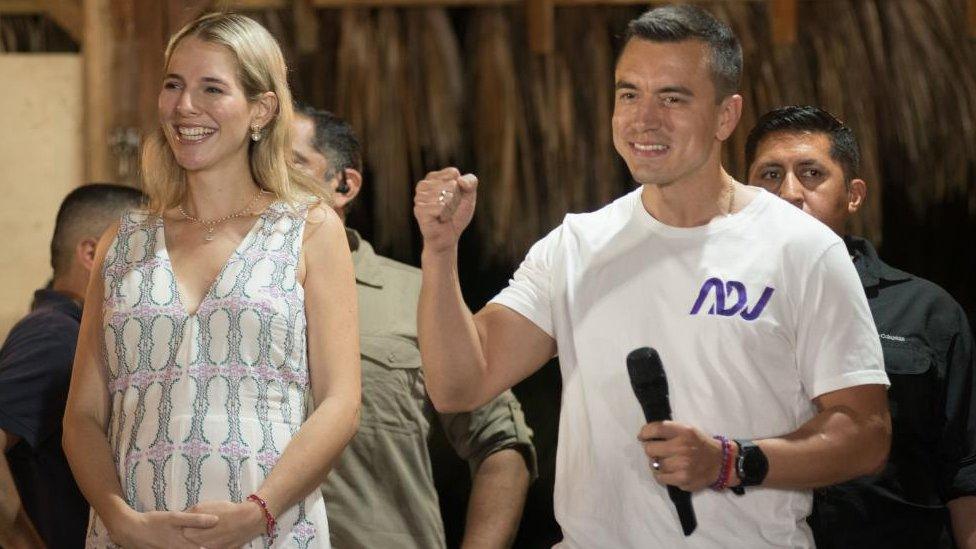Ecuador president defies gangs to take on the army
- Published
Watch: 'They hunted us' says Ecuador TV station attack victim
Ecuadorean President Daniel Noboa has challenged armed gangs to take on the military rather than civilians as soldiers were deployed to combat the criminal groups.
Mr Noboa declared a state of emergency on Monday after a wave of gang violence swept through the Andean country.
In the most dramatic incident, armed men stormed a TV station and threatened the staff during a live broadcast.
More than 300 suspects have been arrested under the state of emergency.
Mr Noboa struck a defiant tone in a radio interview on Wednesday.
The 36-year-old president, who has only been in power for two months, challenged the gangs. "Be brave, fight the soldiers," he told them, referring to the fact that most of those who have been targeted by the gangs have been civilians or unarmed prison guards.
At least 14 people have been killed in recent days as gang members set off explosive devices, burned vehicles and kidnapped police officers on duty.
One hundred and fifty-eight prison guards and 20 employees working for the prison system have also been taken hostage by inmates, officials said. An armed forces commander said on Wednesday that so far none of the hostages been killed.
President Noboa said Ecuador was living through "a very tough moment" but insisted that his government would be tough on the gangs and "any judges or prosecutors who back these gangs".
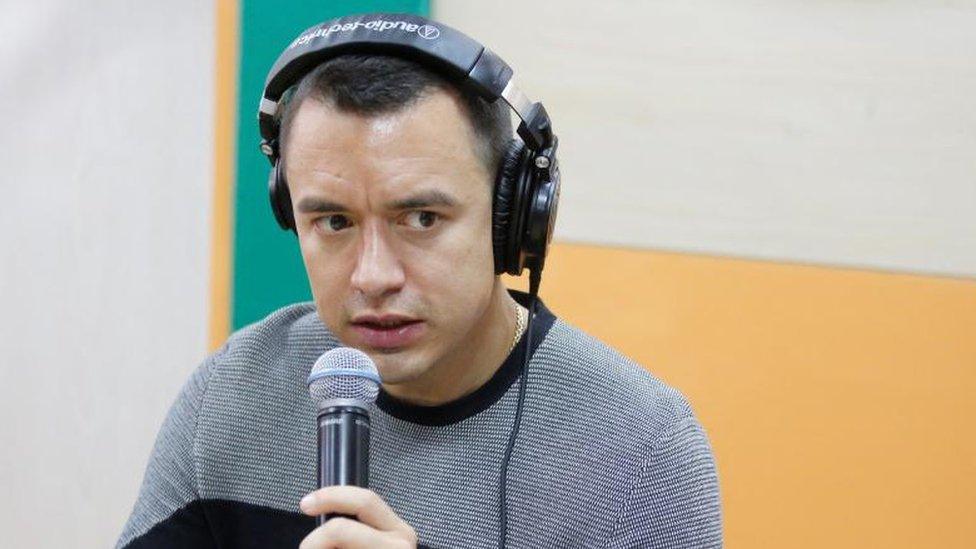
Daniel Noboa was elected last year after another presidential candidate was assassinated
The current surge in attacks appears to have been kicked off by an attempt to transfer the notorious gang leader known as "Fito" from the jail which he largely controlled to a prison which is considered more secure.
But when police entered his cell in the Regional jail on Sunday, they found it abandoned.
News of his escape triggered riots in other jails, during which Fabricio Colón Pico, who is one of the leaders of the Los Lobos gang, also absconded.
Neither Fito, whose real name is Adolfo Macías Villareal, nor Colón Pico have so far been tracked down. The Ecuadorean government has offered a reward for information leading to their capture. They are also offering rewards for 17 other gang leaders.
Ecuador, which until recently was a relatively safe country compared to the rest of the region, saw its murder rate more than quadruple between 2018 and 2022 as criminal gangs linked to drug trafficking became more powerful.
President Noboa declared 22 of these groups "terrorist gangs" on Tuesday and decreed that his country was involved in an "internal armed conflict".
Ecuador's Congress has unanimously approved the measure, which allows soldiers to be deployed to patrol the streets and to search homes for weapons and suspects.
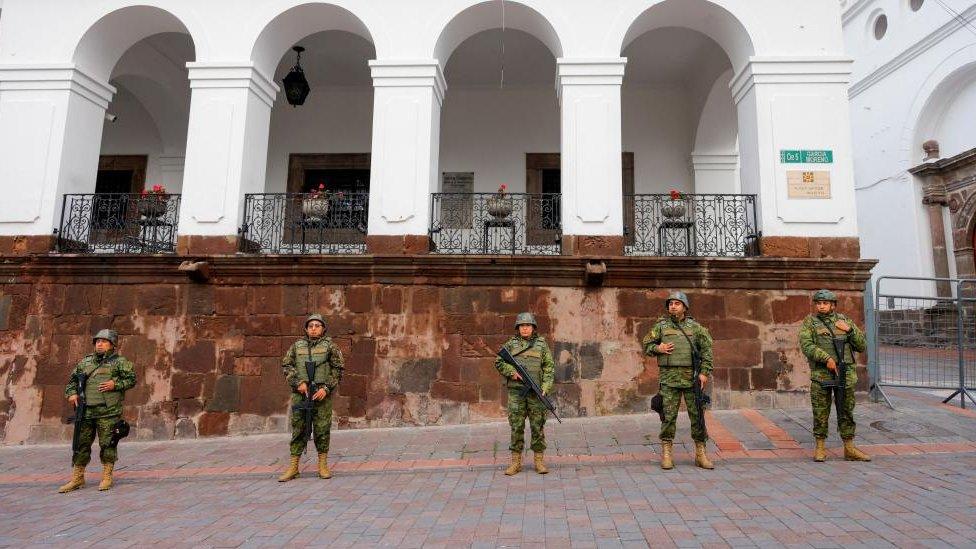
Soldiers were guarding the presidential palace in Quito on Wednesday
The BBC's Will Grant who is in Guayaquil, the port city worst hit by the recent violence, says its residents are still struggling to make sense of the gang rampage.
One of the journalists who lived through the storming of the TC television studios in Guayaquil told Ecuadorean news site Primicias , externalhow the gunmen threatened her and her colleagues.
She described how the armed men demanded that the presenter make an announcement live on air.
"They wanted my colleague to say: 'The mafia is in power, the president can't beat us.'" But she added that the gunmen did not have any clear demands beyond that.
The gang was eventually overpowered by the police, which arrested 18 of them.
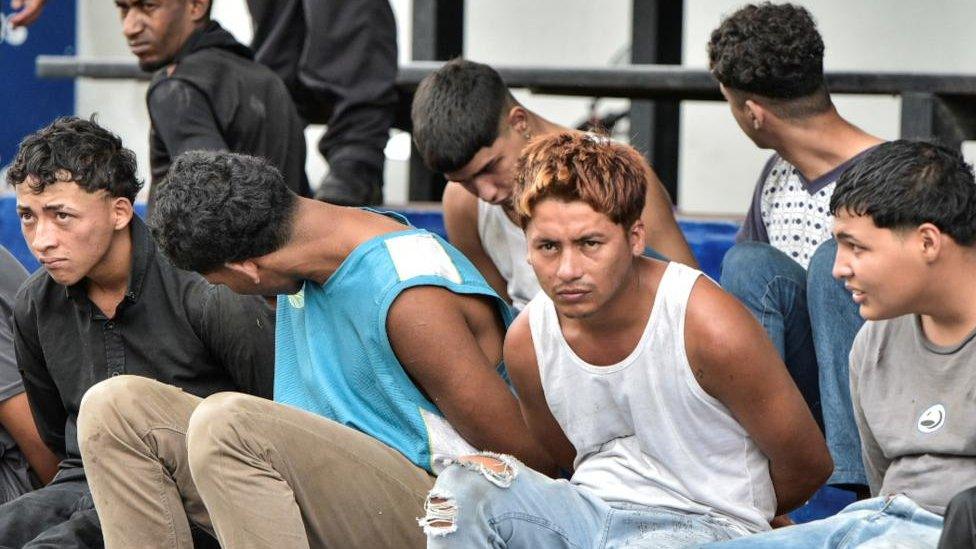
A total of 18 suspects have been arrested in connection with the storming of the TC studio
Related topics
- Published10 January 2024
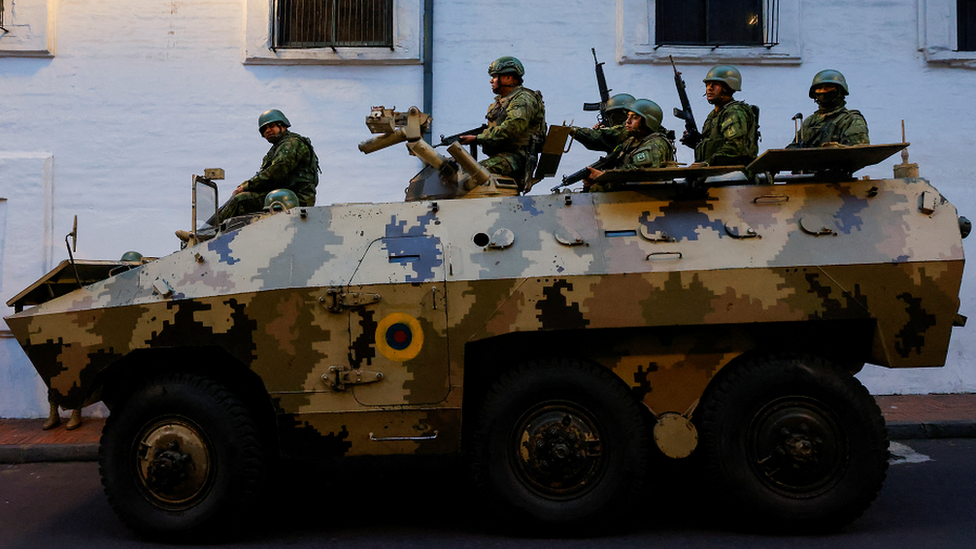
- Published8 January 2024
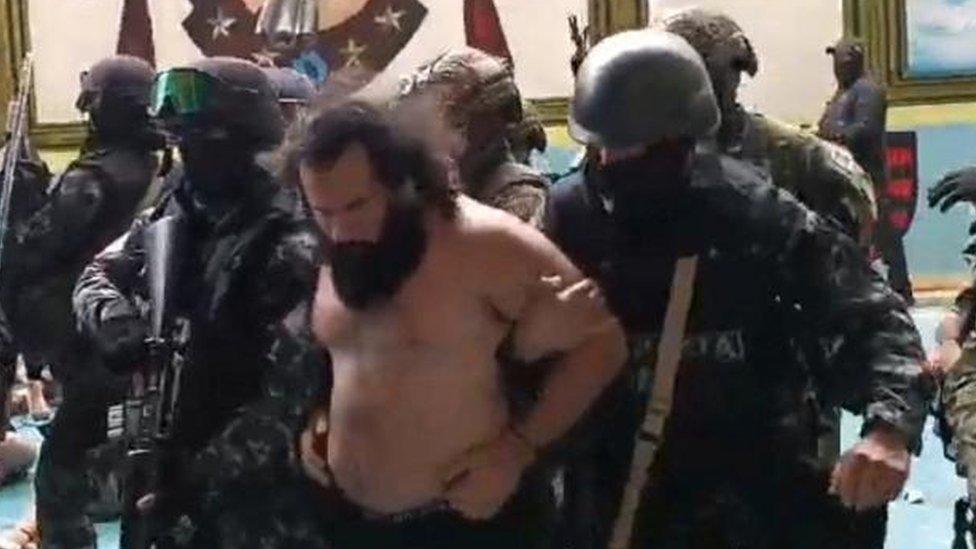
- Published16 October 2023
